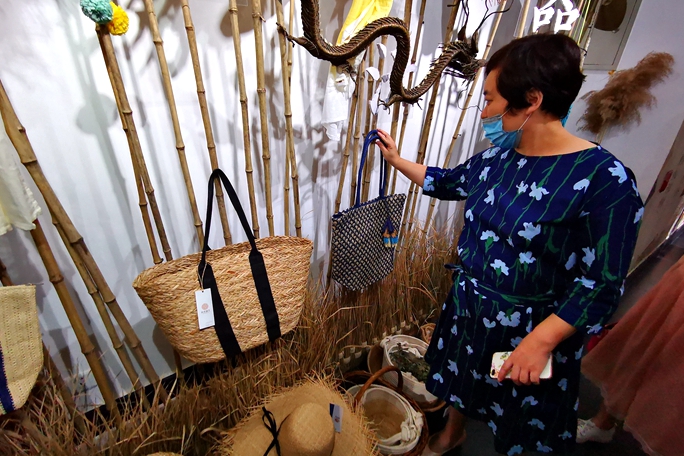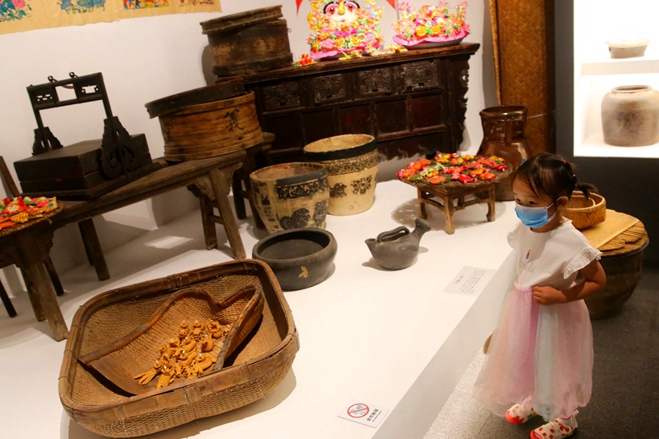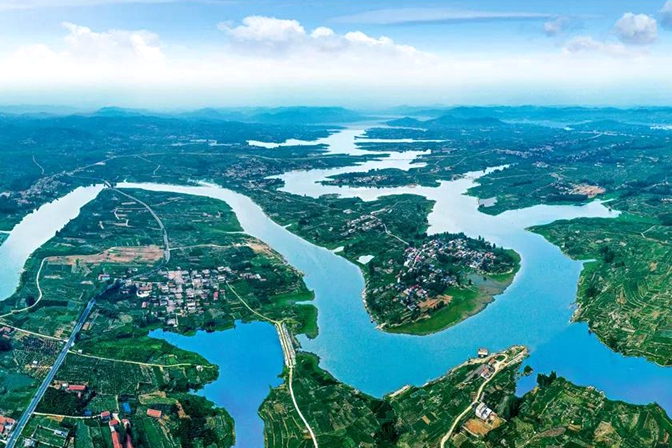Mo Yan senses literary greatness for HK
When the plane taxied down the runway at Hong Kong International Airport on April 26, Mo Yan sniffed something different. The scent emanating from this city is so distinct that he had never smelt anything like it elsewhere before. It smelt fresh, crisp - and modern.
"It could be an amalgamation of the scents of cosmetics, seafood and many other things, creating a 'Hong Kong scent'," recounted Mo, a revered Chinese novelist and winner of the 2012 Nobel Prize in Literature.
It could also be the city's unique "scent of the arts", Mo muses, which derives from the people and writers living in town.
To Mo, Hong Kong has always been a singular place, with its distinct aroma, language, history and culture underpinning the city's inimitable character.
Hong Kong has been recognized as a stronghold of financial activity, swank and modern attitudes, while also being criticized as a "cultural desert" that cold-shoulders arts development. But Mo dissented from this critique back in the 1990s.
A cultural oasis
"I think Hong Kong is in fact a cultural oasis, as opposed to a desert," he told China Daily in an exclusive interview.
All the while, the city has been a melting pot that has bred umpteen fascinating literary works, Mo explained. Exceptional local authors like Liu Yichang, Jin Yong and Xi Xi (a close friend of Mo's), and the vibrant movie industry are testament to the city's storied cultured aura.
The literary savant holds that Hong Kong will see more forms of stellar literature and art emerging under the development of the Guangdong-Hong Kong-Macao Greater Bay Area.
Under the Bay Area framework, the Hong Kong Special Administrative Region is integrating closely with the Macao SAR and nine cities of Guangdong province, with the intention to build a world-class city cluster in the region. Mo thinks such integration is the key to innovation, and when people from different cities interact more frequently, the increased communication is a huge boon, spurring the arts and cultural advancement within the region.
"It works like cooler and warmer waters colliding under the ocean, wherein the intersection breeds a wide diversity of aquatic species," Mo elucidated metaphorically.
He believes the prospect of the Bay Area is comparable to that of Quanzhou, Fujian province - which was the starting point of the ancient maritime silk route and the intersection of Arabic and Western cultures. When Mo visited the place several years ago, he was dazzled by the amicable coexistence of various cultures and religions, enabling one to feel and resonate with them.
Having a wide diversity of cultures and races, and benefiting from the push of the strategic plans of the Bay Area, Mo holds that Hong Kong's literary scene is set for a far more effervescent phase. The unprecedented level of partnership between cities will open the door to a great diversity of writers and new genres of literature, music and arts, he added.
Sense and sensibility
As idiosyncratic as it sounds, Mo sniffs out Hong Kong's attributes by its inconspicuous traces of smells. He has an extraordinary sensibility regarding scent, able to discern from the mixed odors that drift by anything from heady perfume to the faint whiff of grass. It's a skill he picked up in his youth when he spent much solitary time pasturing cows on farmland in his hometown Gaomi, Shandong province. It's a reward the arduous peasant life rendered him, he said.
Mo, who dropped out of school around 11 and never received formal education, won the Nobel Prize in Literature in 2012. His novels have been widely praised for their outre literary imagination, submerged in a peasant spirit.
He explained that the literary caprices and talents he forged in the early days are very much attributed to China's reform and opening-up - the policy pursued since 1978 to engage international trade and foreign investment, contributing to the nation's robust economic growth.
"The policy also opened the door to Western classical literature and poems, which first entered China in the 1980s," recalled Mo. All of a sudden, he had access to a whole slew of literary classics to learn from and relate to, and this brought his and other Chinese authors' knack for writing to new heights, he added.
This year marks the 40th anniversary of the reform and opening-up. In the early stages, Mo was one of the authors tapping into the influx of Western literature. And now, he expects the influence of Chinese literature and culture will be exported to other parts of the world, having a positive impact on avid readers and writers worldwide.
At a tender age, well before his writing talent had fully developed, Mo already had a great zeal for reading that he said helped cultivate his literary finesse. The revered writer sees the educational function of literature as very different from other subjects like physics and math.
"It (literature) educates people through abstraction, helps improve one's disposition, purify one's soul and enhance relationships between people," he said.
As such, he recommends youths in Hong Kong read as much and as broadly as they can, to use their gadgets to read in brief snatches to broaden knowledge, but also to pore over the classics in minute detail.
Close to the end of the interview, Mo recited the poem Happy Rain by Du Fu, a poet of the Tang Dynasty (618-907): "Sweet rain waters nature quietly and imperceptibly".
For Mo, literature is like the rain, nurturing people's knowledge and traits. He believes it can lead Hong Kong and cities within the Bay Area toward a better, harmonious and peaceful future.
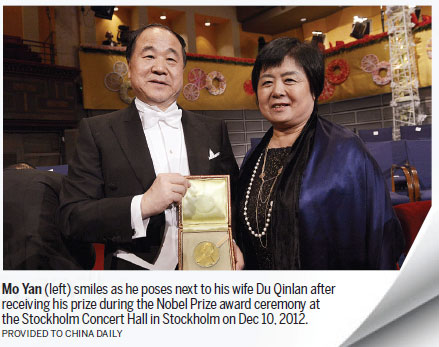
(HK Edition 05/21/2018 page8)

 Shandong Culture and Tourism Consumption Season
Shandong Culture and Tourism Consumption Season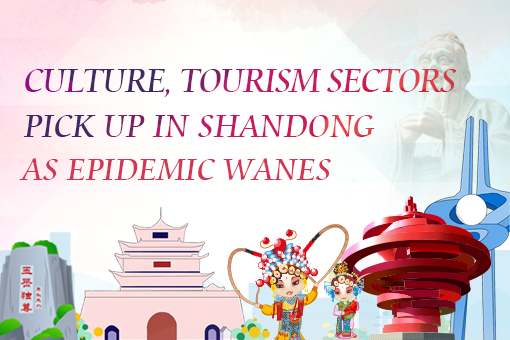 Culture, tourism sectors pick up in Shandong as epidemic wanes
Culture, tourism sectors pick up in Shandong as epidemic wanes